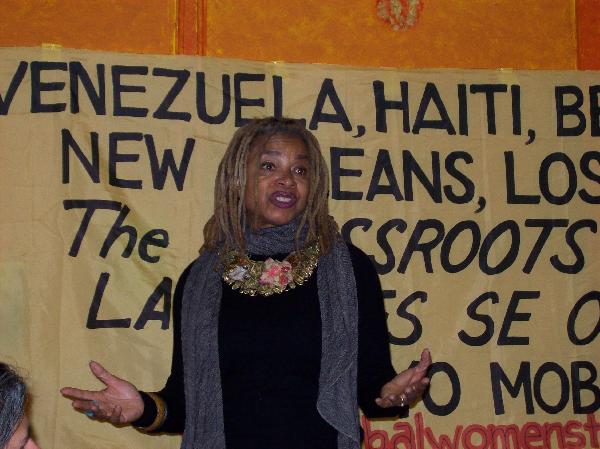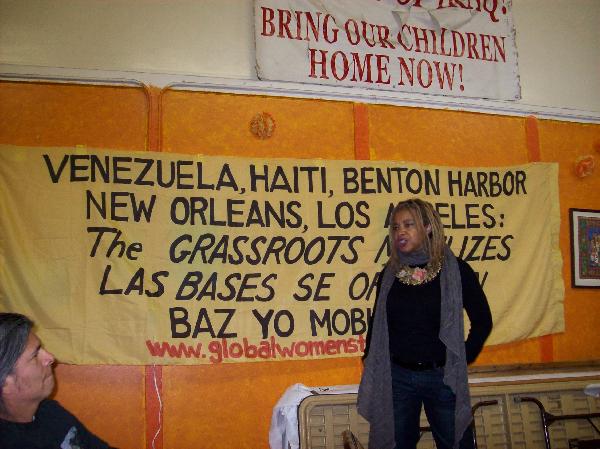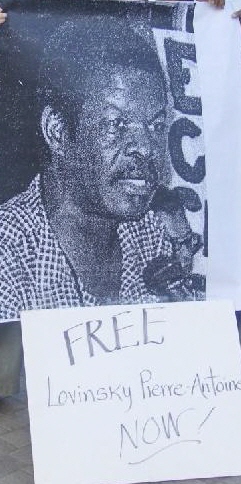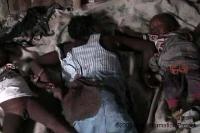| About Us | Contact Us | Calendar | Publish | RSS |
|---|
|
Features • latest news • best of news • syndication • commentary Feature Categories IMC Network:
Original Citieswww.indymedia.org africa: ambazonia canarias estrecho / madiaq kenya nigeria south africa canada: hamilton london, ontario maritimes montreal ontario ottawa quebec thunder bay vancouver victoria windsor winnipeg east asia: burma jakarta japan korea manila qc europe: abruzzo alacant andorra antwerpen armenia athens austria barcelona belarus belgium belgrade bristol brussels bulgaria calabria croatia cyprus emilia-romagna estrecho / madiaq euskal herria galiza germany grenoble hungary ireland istanbul italy la plana liege liguria lille linksunten lombardia london madrid malta marseille nantes napoli netherlands nice northern england norway oost-vlaanderen paris/Île-de-france patras piemonte poland portugal roma romania russia saint-petersburg scotland sverige switzerland thessaloniki torun toscana toulouse ukraine united kingdom valencia latin america: argentina bolivia chiapas chile chile sur cmi brasil colombia ecuador mexico peru puerto rico qollasuyu rosario santiago tijuana uruguay valparaiso venezuela venezuela oceania: adelaide aotearoa brisbane burma darwin jakarta manila melbourne perth qc sydney south asia: india mumbai united states: arizona arkansas asheville atlanta austin baltimore big muddy binghamton boston buffalo charlottesville chicago cleveland colorado columbus dc hawaii houston hudson mohawk kansas city la madison maine miami michigan milwaukee minneapolis/st. paul new hampshire new jersey new mexico new orleans north carolina north texas nyc oklahoma philadelphia pittsburgh portland richmond rochester rogue valley saint louis san diego san francisco san francisco bay area santa barbara santa cruz, ca sarasota seattle tampa bay tennessee urbana-champaign vermont western mass worcester west asia: armenia beirut israel palestine process: fbi/legal updates mailing lists process & imc docs tech volunteer projects: print radio satellite tv video regions: oceania united states topics: biotechSurviving Citieswww.indymedia.org africa: canada: quebec east asia: japan europe: athens barcelona belgium bristol brussels cyprus germany grenoble ireland istanbul lille linksunten nantes netherlands norway portugal united kingdom latin america: argentina cmi brasil rosario oceania: aotearoa united states: austin big muddy binghamton boston chicago columbus la michigan nyc portland rochester saint louis san diego san francisco bay area santa cruz, ca tennessee urbana-champaign worcester west asia: palestine process: fbi/legal updates process & imc docs projects: radio satellite tv |
printable version
- js reader version
- view hidden posts
- tags and related articles
Haiti Event Marks Four Years Since the Coup Against Aristideby Weak from Fasting Saturday, Mar. 08, 2008 at 10:07 PM“[P]eople in Haiti tell us that all of this stuff has an impact. The more people are doing in other counties, even small events like this one, have an impact because the word is starting to get out to people. So any small thing that you can do really helps.” – Margaret Prescod
As part of the International Day of Action in Solidarity with the People of Haiti, Global Women’s Strike hosted a showing of the films Haiti: Harvest of Hope (see the trailer here: http://www.youtube.com/watch?v=3b5DUIV0ZrM) and What’s Going on in Haiti? at the Eastside Café on Saturday, March 1.
Margaret Prescod of Pacifica Radio and Women of Color in the Global Women’s Strike, moderated the event. "The Reports that I’ve gotten are is that things are going very well, there were events in about 36 cities around the world,” she said. “There were four major events in Haiti yesterday, including in Port au Prince, that were quite large, including a contingent of people who were also demanding the safe return of Lovinsky Pierre-Antione, one of our comrades who’s been missing in Haiti” (see: http://la.indymedia.org/news/2007/11/210199.php). Haiti: Harvest of Hope, directed by by Kevin Pina, chronicles the long history of U.S. interventions in Haiti from its occupation in the early 1900s to the first coup against Aristide in 1991 (by people on the CIA payroll) and also the incredible resilience of the Haitian people throughout these horrors. The film’s many speakers include Haiti’s current president, Rene Preval and Father Gerard Jean-Juste. The film also features beautiful footage of wilderness and foliated, unpaved (but also very poor) neighborhoods with roaming chickens contrasted by horrific violence. The U.S., after decades of supporting oppressive regimes in the first Black Republic (one of whom was killed by the Haitian people in the early 20th century, prompting the U.S.’s decades-long occupation), facilitated a presidential election in 1990 to create stability for businesses such as Xerox. As Jean-Bertrand Aristide comes to the fore as a candidate, we see staggering crowds of supporters extending as far as the eye can see. An assassination attempt on Aristide kills some of his supporters, but he prevails and wins the election. Much to the displeasure of Haiti’s elite, Aristide allows common people to enter the presidential palace for the first time. His inauguration is attended by homeless children. The first coup attempt against Aristide occurs immediately, but it fails. To help the new president carry out his agenda, many Haitians do volunteer work around the country, and murals of Aristide are painted. One of his supporters calls him a “new Jesus.” This woman is among those who lost family in a 1987 massacre. Aristide has allowed them to a search for mass graves and have proper burials. Those responsible for the massacre are arrested. During Aristide’s short term as president, there is also a dramatic reduction in crime. The first U.S.-backed coup against the popular president occurred on September 30, 1991. Aristide could have fought back, but he knew it would have caused a civil war. While in exile in the U.S., Aristide talks of building a new Haiti without a military. (This film can be purchased here: http://www.teledyol.net/KP/HoH/HoH.html.) The next film, a short called What’s Going on in Haiti?, describes the disastrous U.N. occupation and the December 22, 2006 massacre of civilians in Cite Soliel. Some of the victims are interviewed while they are dying. We see children and pregnant women among the casualties. Filmmaker Kevin Pina explains, in a KPFA interview, that this is the “U.N. exacting retribution” for a massive protest which recently occurred here, demanding the return of Aristide. After the screening, Prescod further discussed world-wide calls for the release of Haitian human rights activist Lovinsky Pierre-Antione. “In Los Angeles a number of people have signed up to fast on Tuesdays until Lovinsky’s safe return. Some fast all day, some fast for shorter periods of time. In London, they’re actually doing weekly vigils and fasts. There are now fasters in a number of cities: up north in the Bay Area, in Philadelphia, some in the Caribbean region. So another thing people can do is sign up to fast, and the names of the fasters we put up on the website. “And people in Haiti tell us that all of this stuff has an impact. The more people are doing in other counties, even small events like this one, have an impact because the word is starting to get out to people. So anything small thing that you can do all really helps. “. . . If you want to take copies of the petition and get some signatures; or you want to sign up to participate in the fast; or you want to get a copy of the film, perhaps we can help to facilitate some way to show [it] to your friends, or family, or religious organization, your student group, or whatever. A lot of people have no idea that this is happening not that far from Miami.” She further described Pierre-Antione (who is seen in Harvest of Hope being interviewed by Amy Goodman). “When President Hugo Chavez of Venezuela visited Haiti to make a commitment for some resources for the people, it was Lovinsky Pierre-Antione that organized a grassroots welcome for President Chavez. They only knew about three days before [of Chavez’s visit], and thousands of people poured into the streets at Port au Prince to welcome President Chavez and run along the side of the car. So that’s really the caliber of a person of Lovinsky. “. . . Aristide gives a New Year’s message to the people, and he started his message [this year] about Lovinsky. It was really quite a beautiful message.”
Report this post as:
Margaret Prescod discusses the situation in Haitiby Weak from Fasting Saturday, Mar. 08, 2008 at 10:07 PM
error
Report this post as:
Lovinsky Pierre-Antione, disappeared Haitian activistby Weak from Fasting Saturday, Mar. 08, 2008 at 10:07 PM
error
Report this post as:
Atrocity committed under the U.N.by Weak from Fasting Saturday, Mar. 08, 2008 at 10:07 PM
The U.N. was ostensibly going after "criminal thugs." However, observers say this was retribution for a major protest demanding the return of Aristide, which occurred less than a week earlier.
Report this post as:
|






